Last Updated: 21 April 2021
Since the World Health Organization (WHO) declared COVID-19 a pandemic on March 11, the cases of the coronavirus illness have surpassed millions, spreading rapidly to more than 200 countries and territories around the world. Countries in the Southeast Asia region are not inevitable from this crisis. As of now, all 10 ASEAN Member States have been experiencing the growing confirmed case. It does not only present challenges towards public health but also disrupts other sectors, including energy and climate change.
Based on our recent survey, COVID-19 is affecting fossil fuels the most, but renewable energy is also considered to be hit. A positive temporary effect on the climate must be used to mainstream the information about climate change mitigation into the society, must involve in a more sustainable economy, and environmental-friendly activities into daily lives.
Here, we provide various updated information and analysis on the energy and climate change in ASEAN in related to COVID-19.
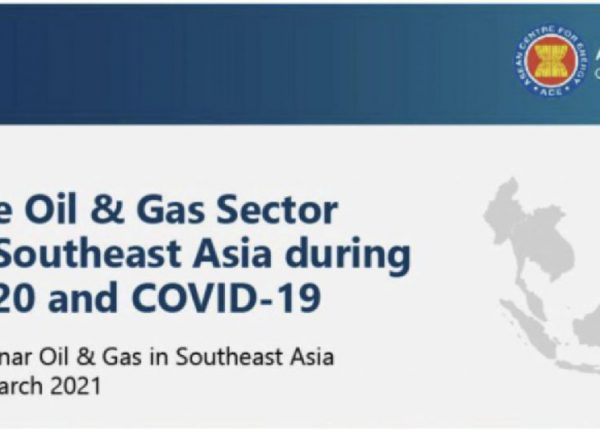
On March 23rd, 2021, Austria Advantage in Kuala Lumpur held an online event named “Oil & Gas in Malaysia & ASEAN, Market Potential and…
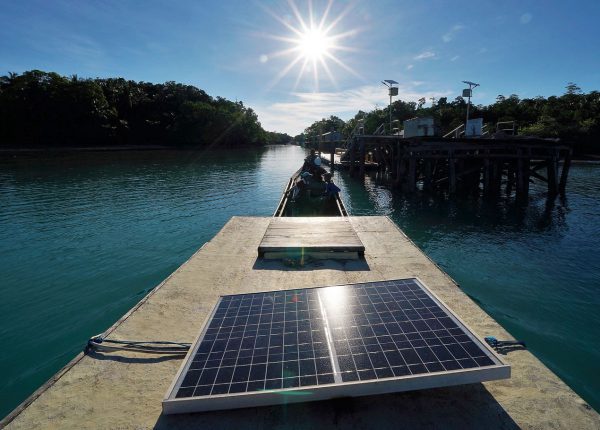
Given its abundant renewable energy potential, Indonesia has set an ambitious target of increasing the share of…
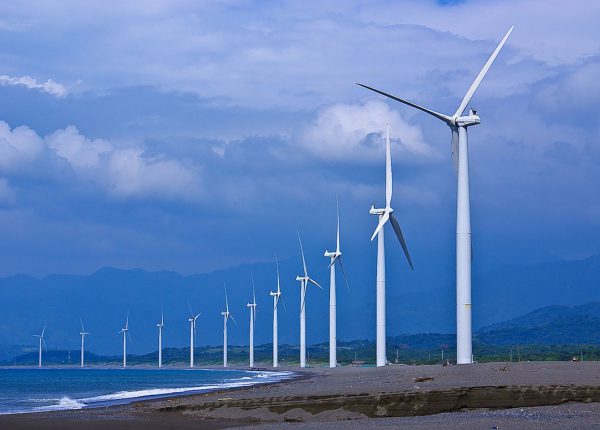
Southeast Asia’s power sector is set to strike out in a new direction this year, driven by energy security needs and new…
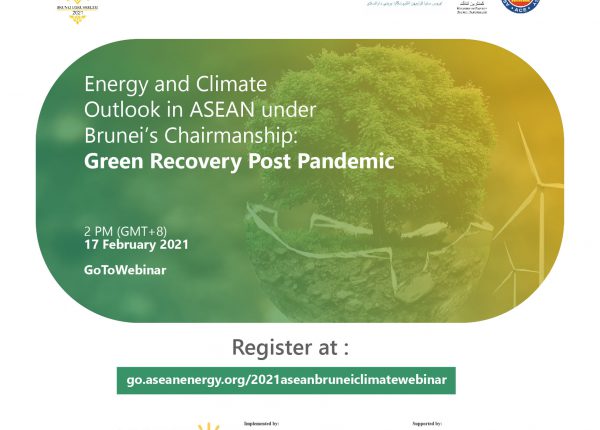
The webinar explained the outlook of energy and climate change in ASEAN…
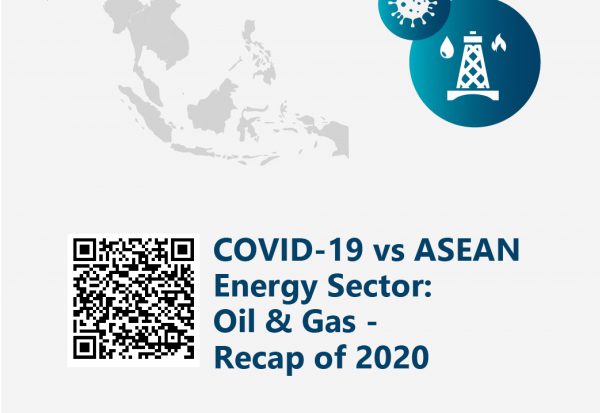
The year 2020 has been challenging globally as the coronavirus lingering. In March, COVID-19 was declared by…
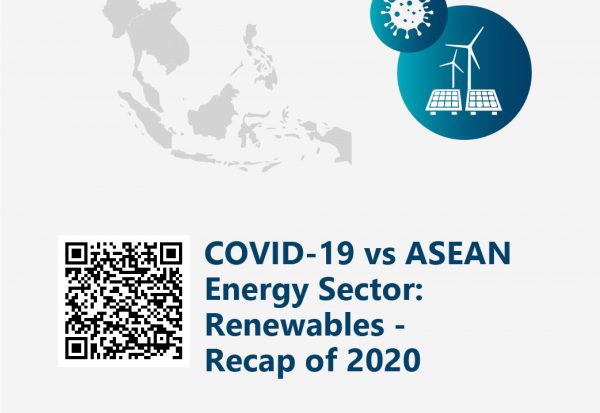
Entering the new year of 2021, the world could not shrug off the pandemic just yet. Mixed messages from vaccine development and…
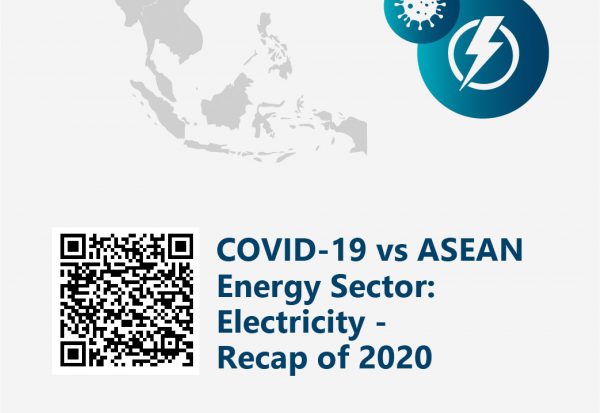
As reported in the Q1 energy insights, electricity demand reported a fall. The power sector has to experience a major slump during…
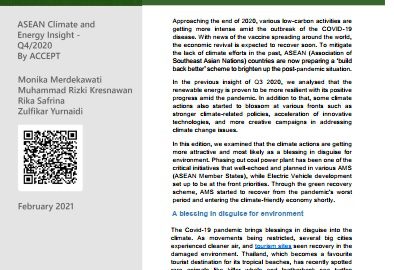
The Covid-19 pandemic brings blessings in disguise into the climate. As…

Since the emergence of the Covid-19 outbreak, countries around the world are still trying to cope and minimise its impact on the…

The industrial sector has been a key driver of the growth in Indonesia energy demand. The largest industry sub-sectors in…

The unprecedented COVID-19 pandemic shocked the world in the first quarter of 2020 with no clear end in sight. Severe impact…
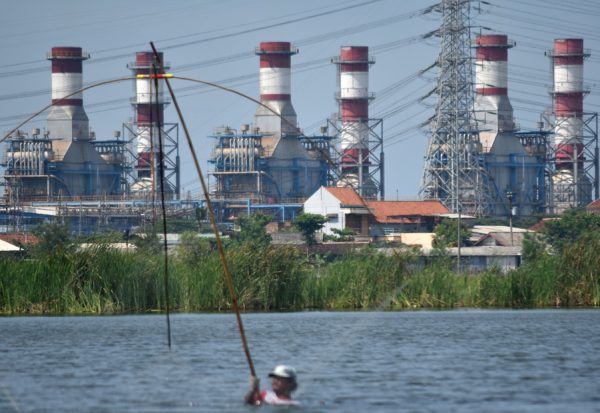
In developing countries, energy use from industry rises proportionally to gross domestic product (GDP), according to the 2017 report from…
Uncertainty outlook as the impact of weakening oil market is still making oil and gas industries suffered since the pandemic outbreak…
Resiliency is shown by ASEAN RE projects in thesecond half of 2020 despite the lingering trace of the pandemic in the energy sector…
The power sector remains an industry that is recovering at the latest due to the pandemic. Until the first half of 2020, domestic…
The global focus of obtaining affordable and clean energy is also echoed in the ASEAN region. The region is..
As stronger climate policies are put in place, and renewable energy is proven to be resilient amid the pandemic. We’ve seen…
The Covid-19 pandemic is still ravaging the region, well into the third quarter of 2020. Struggling to patch the…
Population growth has contributed to rising energy consumption around the world, and Southeast Asia has been no different. Between…
Before the pandemic hits, the global renewable energy development was…
Faced with a grim economic outlook, how can ASEAN member states include the clean energy transition in their COVID-19 recovery plan? In Southeast…
The COVID-19 pandemic forced us to modify our work system in several sectors, from working in the office to working at home. With the…
All living beings on earth should thank the air, which gives life for every new-born, and its day by day growth. Have you ever wondered, though...
To outline the status of the government…
Dr. Hoyyen Chan shared the popularity analysis using the Google Trends to compare the relative popularity search items of “climate change” with the “Covid-19” from…
Post-pandemic era is not only about economic rebound, but it is the time for global and local community to focus their investment and interest...
As the end of the pandemic seems to be further than expected, development of climate-friendly technologies would require proper…
Transportation has evolved over time, from relying on human power alone, animal riding and wheels that improved the speed and range of mobility. Then came…
It is necessary for ASEAN to move forward in the spirit of…
Electricity is sometimes overlooked as an ordinary thing to have because most people have access to it throughout their entire lives. However…
ACCEPT recently organised a brand-new seminar/webinar series called “Launching Talk”. The “Launching Talk” is designed to launch ACE products to a wider...
ASEAN Centre for Energy (ACE) released a series of analysis on renewable energy…
The issue of the impact of Covid-19 on energy is also the main concern for the regulators. Hence,…
Future projections of electric mobility are promising, but uptake in the region will depend…
The winding road as an impact of pandemic gives pressure in the oil and gas market. It became a serious challenge to survive…
Renewable Energy projects continuously experience inevitable struggles during the COVID-19 pandemic. However, currently…
In the mid-end pandemic, as countries including the ones in struggles began to reopen the economy, the overall electricity…
Carbon pricing policies form a crucial tool to deliver on the ambitious goals of the Paris Agreement and avoid the costs of carbon lock…
How is COVID-19 impacting the power sector in the region, and what new tools, resources or changes…
2020 is incredibly tough for ASEAN energy development as Covid-19 brings unprecedented challenges to the…
2020 is incredibly tough for ASEAN energy development as Covid-19 brings unprecedented challenges to the…
ACCEPT initiated an In-House Sharing Session, discussing five different topics under a common theme regarding the COVID-19 pandemic and climate crisis via online…
The Asia Clean Energy Forum (ACEF) of the Asia Development Bank (ADB) is one of Asia’s leading clean energy events and is held each June. ACEF connects…
It has been half a year since COVID‑19 was first reported in December 2019, followed by the World Health…
As COVID-19 already spread all around the world, global economic activities have been slowed down. Various people’s mobility…
Plunge in demand, supply glut, and plummeting price—even touching minus point—have made oil and gas market gloomy especially in ASEAN countries….
Renewable energy sector is also inevitably hit by this pandemic, remarkably under the disrupted supply chain and logistic which cause inevitable postponed….
Falling electricity demand is a dire impact of COVID-19 as the quarantine practice, which urges power utilities to cope. Left hanging between…
The survey was conducted from 17 to 31 March, with A total number of 401 respondents from 25…
The world is stunned by the emergence of fast-spreading Coronavirus Disease…
COVID-19 is affecting fossil fuels the most, but renewable energy is…
Calls to “flatten the curve” of COVID-19 have gotten stronger since the World Health Organization declared…
ASEAN | Brunei Darussalam | Cambodia | Indonesia | Lao PDR | Malaysia | Myanmar | Philippines | Singapore | Thailand | Vietnam
Related News
2021 News
2020 News
Related News
2020 News
Key Policy Responses
The authorities have issued a reduction of electricity tariffs for five months starting from June, specifically for manufacturing, agriculture, commercial, and service firms. The bill is expected to be reduced by 25 percent, as a government’s effort to sustain the business operations in those four key sectors.
Related News
2021 News
2020 News
Key Policy Responses
As a result of the coronavirus pandemic, Indonesia took another step back toward a clean energy economy due to fossil fuel subsidies and hampered clean power plant projects such as geothermal. Indonesia introduces a domestic coal price of $20 below market price in January and set a subsidised fuel quota at 26.87 million kiloliters (mL) as a government position to protect the people’s purchasing power and ensure the business community.
Related News
2021 News
2020 News
Key Policy Responses
The authorities issued the Relief and Public Sector Expenditure Measures to Reduce the Impact from the COVID-19 Pandemic. Relief measures are primarily concerned with tax relief such as salary tax exemption, Deferment of payments for affected businesses, Profit tax exemption for micro-enterprises, etc. Meanwhile Public Sector Expenditures maintain large-scale investment project through the reduction of administrative expenses.
Related News
2020 News
Key Policy Responses
In response to the COVID-19 outbreak, the government deferred the implementation of the national B20 program due to lower crude palm oil (CPO) demand and focus response to resources. The government also decided to extend discounts offered on electricity bills, as announced under the Prihatin Economic Stimulus Package, until December 2020.
Related News
2020 News
Key Policy Responses
The authorities scheduled to resume two of five emergency power projects by May should be up and running by September. In addition, the government will be extending the deadline for the monthly power tariff in Yangon as part of measures to avoid unnecessary mass gathering during the COVID-19 pandemic.
Related News
2020 News
Key Policy Responses
In April, The authorities will provide free electricity for March and April to support low-income households during the COVID-19 pandemic. They also cancel penalties, interest, and fees for late payment. The collapse of world oil prices did not shake the Philippines because they were not oil exporters. Then, In May, the Philippines President temporarily increased tariffs on imported crude oil and refined petroleum products aimed at mitigating the economic impact of the coronavirus outbreak. Since July, the Department of Energy (DOE) is advancing a policy re-casting that will allow full ownership in renewable energy (RE) projects.
Related News
2021 News
2020 News
Key Policy Responses
In May, the authorities consider that the crisis due to COVID-19 is an opportunity to accelerate the transition of energy towards safe and sustainable energy. They plan to continue to develop low-carbon energy and continue to decarbonize their energy systems.
Related News
2021 News
2020 News
Key Policy Responses
In April, Even with this COVID-19 pandemic going around the world, Thailand still aims to become a regional LNG hub and keeps factories running by cutting electricity charges. Not only for factories, but they also cutting electricity charges for 22 million houses. In June, State-owned Thai oil and gas company, PTT Pcl, cut its investment budget by 10-15% whilst Committee on Energy Policy Administration (CEPA) extends discounts on LPG for households and NGV for taxis.
Related News
2021 News
2020 News
Key Policy Responses
In March, The authorities have announced that there will be no price increases until the end of Q2 while promoting renewables by approving regulation towards cheaper green energy, even during this COVID-19 pandemic. While in April, The Ministry of Industry and Trade (MoIT) has decided to cut power bills for businesses and households by 10 percent over the next three months,
Related News
2021 News
2020 News